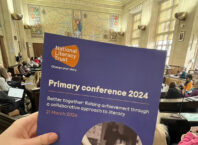BRITAIN’S housing shortage will only be made worse by rent caps, a leading property association has said.
The National Association of Property Buyers (NAPB) issued the warning as calls grew for controls to be introduced.
New figures out today also exposed the rising rents many tenants now face.
Earlier this month London’s Mayor Sadiq Khan said one solution was imposing a limit on how much landlords could increase rents in the capital.
Elsewhere leaders at Bristol Council said it was consulting residents about possible rent controls, while in Scotland the Government has imposed a cap until March.
Jonathan Rolande, spokesman for the NAPB, said replicating such a move across parts of England and Wales could prove disastrous.
He said: “Rent control isn’t the answer to our housing crisis. In fact, it risks making it worse and creating a whole new crisis.
“In the very short term, caps give reassurance to tenants who know that their rent will not be increasing. But unless subsidies to top up the difference are provided by the Government many existing landlords will simply sell up, reducing supply.”
Outlining the other downsides, Mr Rolande continued: “Overseas investment in buy to let will drop.
More landlords will opt for the more profitable AirBnB style of rental while some landlords will have their properties repossessed. We will also witness new entrants to the sector being deterred.
There will still be a housing crisis, it will just be a different set of problems.”
Mr Rolande’s comments come days after the chief executive of one of the largest residential landlords issued a similar warning.
Rick de Blaby, head of Get Living, which owns the former Olympic Village in London, said rent caps would suffocate supply.
Small landlords are already leaving the market because of changes to regulation and taxes, while rising building costs and onerous planning rules are deterring development.
The number of rental homes has not increased since 2016, according to Zoopla, which estimates that there are 5.5 million rental properties in the UK.
The number of homes unoccupied and available to rent is down 38 percent compared to five years ago, while inquiries with letting agents are up 46 per cent.
Experts say a chronic lack of supply is behind the rapid growth in rents which are increasingly unaffordable.
According to figures out today the average monthly rent being asked of new tenants across Britain, excluding London, has hit a record £1,172 per month, according to a property website. The typical private rent being asked within London also hit a record high of £2,480 a month, Rightmove said. Its latest figures cover the fourth quarter of 2022. Rightmove added that average asking rents in inner London surpassed £3,000 per month for the first time, hitting £3,010. The website said there are signs that competition between tenants for the homes available to rent is starting to ease as more properties become available but the imbalance between demand and supply is still very big. The number of available homes to rent in December 2022 had increased by 13% compared with a year earlier, while the volume of people inquiring about rental properties rose by 7% over the same period, Rightmove said. The website predicts average asking rents across Britain for newly available properties will rise a further 5% in 2023, unless there is a significant addition of available homes to rent. Wales and the South West have seen the biggest jumps in new properties to rent, according to the website, which used asking rents of properties listed on Rightmove to make the findings. Because of the supply-demand imbalance, some commentators expect rents to rise a further 5 per cent this year.
Outlining the main reasons for the current spiraling situation with rent in some regions, Mr Rolande added: “The botched Kwarteng Budget saw BTL mortgage rates almost double. Some landlords had to put rent up to pay their mortgages. Tax relief was also phased out meaning 100% of the mortgage interest had to be paid from taxed income, reducing viability.
“The tenant fee ban has also pushed up rents. General inflation has hit the property sector hard too, supply chain issues have caused materials to increase in cost and made running repairs much more expensive. Sadly, some landlords have increased rents irrespective of these, simply because the market allows it but most have seen the margins eroded, despite higher levels of rent. Without the hope of capital growth, many landlords are now questioning if they still want a buy to let property. Long-term, this could free-up supply, but many tenants will face eviction long before we reach that point.”




